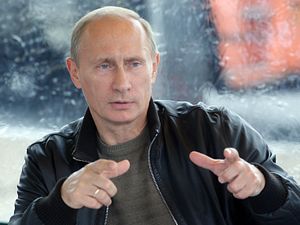For many on the rightward end of the West’s political spectrum – and even some on the far left – there exists a myopic admiration of Russian President Vladimir Putin. Much of this admiration centers of Putin’s muscular approach to foreign policy: cleaving neighboring territories at will, bucking international writ, spurning the West in pursuit of putatively protecting Russia’s interests. From surging through Georgia in 2008 to the ongoing campaign in Syria, Putin has certainly engendered a resurgence of Russia’s power projection. Even the typically reserved Chinese president, Xi Jinping, has expressed admiration for Putin’s moves in Crimea.
Of course, such admiration – gathering with it the proto-fascists, white nationalists, and far-right separatists on both sides of the Atlantic – conveniently overlooks a few salient bits of fallout. Under Putin’s third term, Russia’s internal finances have effectively collapsed, with capital flight, currency devaluation, and years-long recession vying for headlines. Likewise, Moscow has continually ceded influence in Central Asia, and effectively gutted the Eurasian Economic Union’s chances moving forward. Under Putin, Russia had also staked a claim to the highest international disapproval ratings extant, buttressing its claims to isolation.
Now, new numbers help shine a bit of light on just how markedly Russia’s international image has shifted – or disintegrated – under Putin’s third term.
A survey from Gallup, conducted from June to September 2015, found that the majority of EU states in Eastern Europe view Russia as the largest threat to their nation, topped by Poland (69 percent), Estonia (58 percent), and Romania (57 percent). Even Hungary, despite President Victor Orban’s overtures to the Kremlin, saw the largest plurality, at 14 percent, name Moscow as the largest threat to Budapest. Thirteen percent of non-EU members in Eastern Europe, meanwhile, saw the United States as the greatest threat, against only three percent citing Russia.
The poll’s most remarkable findings, however, took place outside the EU. According to Gallup, the plurality of non-Russian citizens in the Commonwealth of Independent States (CIS), comprising most of the former Soviet Union, now view Russia as the greatest threat to their country, at 22 percent of those polled. (The United States clocked in at only 16 percent.)
To be sure, all the caveats about the difficulties of polling within post-Soviet countries remain. Gallup also saw fit to include Georgia within its CIS grouping, despite the country’s 2009 exit. Still, the findings help highlight the regional collapse in Moscow’s standing – and the concerns engendered within the former Soviet republics that have witnessed the Kremlin’s unilateral moves in Ukraine, Georgia, and Moldova.
That said, the regional news isn’t all gloom for Moscow. A second poll, published this month, found that Kazakhstan joins Russia as the two countries with the lowest regard for U.S. leadership. Only 8 percent in Kazakhstan registered approval for Washington’s stewardship, while a remarkable 1 percent of Russians agreed. Interestingly, Uzbekistan also saw a net decline of seven points from its prior approval for U.S. leadership, dropping to 23 percent.
But these views are at least partially offset by other responses. While Kyrgyzstan, like Russia, viewed the United States as the biggest threat, Bishkek also saw a net jump of six points in approval for Washington’s leadership. Turkmenistan and Uzbekistan, meanwhile, viewed Afghanistan as the greatest threat, with a plurality of those surveyed in Tajikistan pointing to Syria.
The two polls, all told, are but a snapshot. The nonetheless help highlight a trend reifying under Putin’s third term. Much as Xi, in light of the West’s response to Moscow, later cooled to the Kremlin’s malfeasance in Ukraine, regional perceptions of Russia have continued degrading alongside. Putin’s muscular moves abroad may win plaudits both domestically and from the Western fringe, but the adventurism has come at the continued expense of both regional sway and international reputation.

































